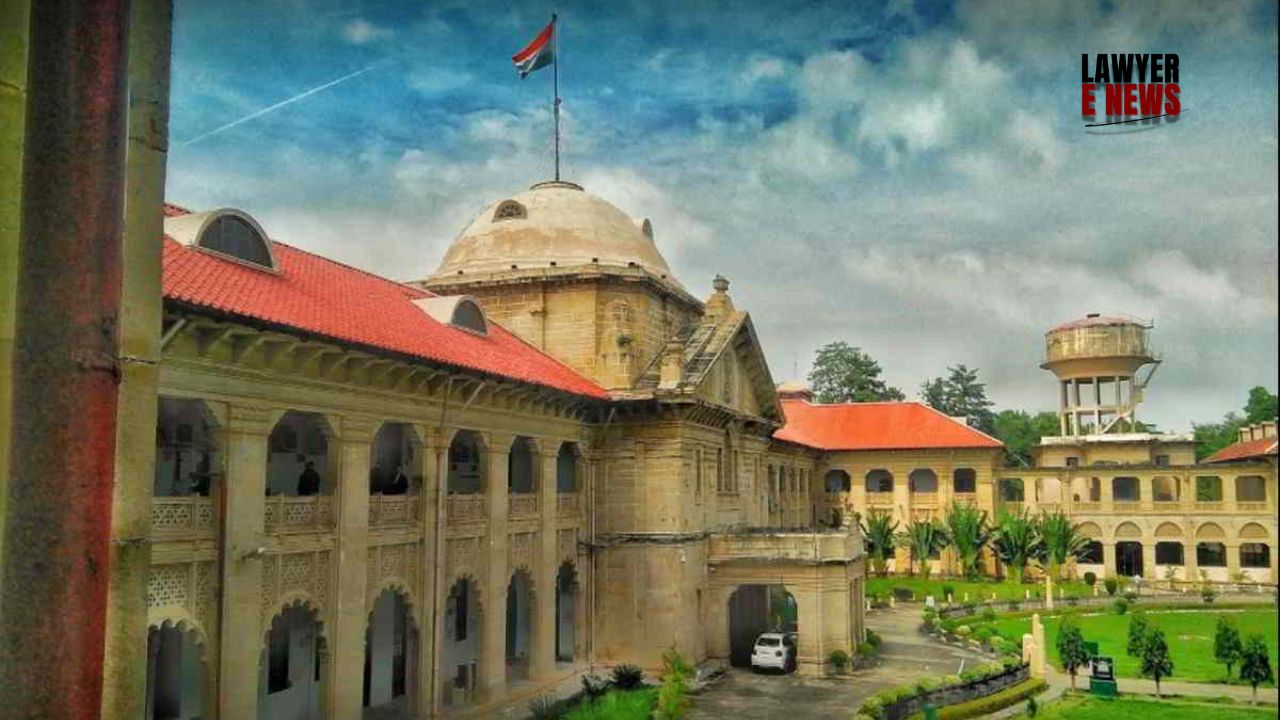-
by Admin
15 February 2026 5:01 PM



Allahabad High Court highlights procedural lapses and insufficient evidence in significant ruling, dismissing State’s appeal for sentence enhancement.
In a significant ruling, the Allahabad High Court has overturned the conviction of Afjal Ansari under the Uttar Pradesh Gangsters and Anti-Social Activities (Prevention) Act, 1986. The decision, delivered by Justice Sanjay Kumar Singh, highlighted the insufficiency of evidence and procedural discrepancies in the trial court’s judgment. The High Court also dismissed the State and victim’s appeals seeking enhancement of Ansari’s sentence.
Facts of the Case: Afjal Ansari, a prominent politician and Member of Parliament, was convicted by the trial court under Section 3(1) of the Gangsters Act in connection with a case dating back to 2005. The prosecution alleged that Ansari was a member of a gang led by Mukhtar Ansari, involved in various criminal activities including the murder of MLA Krishna Nand Rai. Ansari was sentenced to four years of simple imprisonment and fined Rs. 1,00,000 by the Additional Sessions Judge/Special Judge, M.P./M.L.A Court, Ghazipur.
Court Observations and Views:
Credibility of Evidence: The High Court critically examined the evidence presented during the trial. It found that key witnesses, including Ram Narayan Rai, whose testimony was crucial, had turned hostile. The court observed, “The prosecution could not bring on record any material to disbelieve the said stand of the appellant”.
Procedural Lapses: Justice Sanjay Kumar Singh noted several procedural lapses in the handling of the case. He pointed out that the prosecution failed to follow due procedures required under the Gangsters Act, undermining the validity of the charges against Ansari. The judgment stated, “No proceedings of attachment of property of the appellant as provided under Section 14 of the Uttar Pradesh Gangsters and Anti-Social Activities (Prevention) Act, 1986 were initiated by the District Magistrate”.
Witness Testimonies: The court also highlighted the inconsistent testimonies of prosecution witnesses. It found that the statements made by key witnesses in the trial court contradicted their earlier statements, leading to questions about their reliability. The judgment emphasized that such contradictions could not form the basis for a conviction.
Legal Reasoning: The High Court extensively discussed the legal principles related to the Gangsters Act. It reiterated that for a conviction under this Act, the prosecution must establish beyond reasonable doubt that the accused was involved in gang activities. The court found that the prosecution failed to meet this burden of proof. It noted, “The appellant has been acquitted in base case crime No. 589 of 2005, in which it was not found that appellant-Afjal Ansari was a gangster and the said incident was done by any gang”.
Quotes from the Judgment: Justice Sanjay Kumar Singh remarked, “The prosecution could not prove its case beyond reasonable doubt rather prosecution witnesses have given evidence in favour of appellant, even then trial Court has illegally convicted and sentenced the appellant”.
Conclusion: The High Court’s decision to overturn Afjal Ansari’s conviction underscores the importance of adhering to procedural rigor and the necessity of credible evidence in criminal prosecutions. The dismissal of the State and victim’s appeals for sentence enhancement further reinforces the court’s stance on upholding justice based on merit and substantial proof. This landmark ruling is expected to impact future cases under the Gangsters Act, emphasizing the judiciary’s commitment to fair trial principles.
Case Title:Afjal Ansari Vs. State of Uttar Pradesh
Date of Decision:29th July 2024
